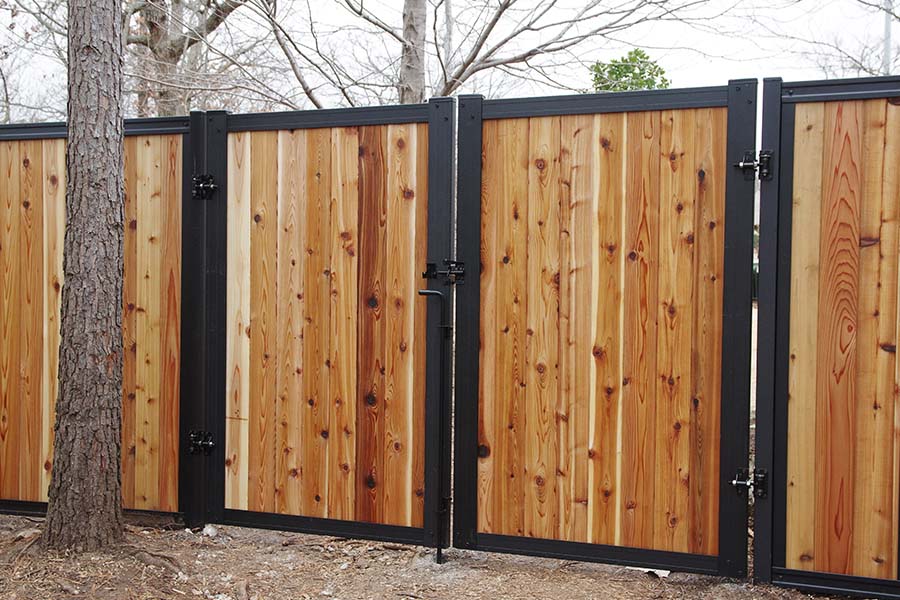All Categories
Featured

When preparing to set up a fence around your home, one of the first steps is understanding the allowing demands in your location. Below's what you need to recognize regarding obtaining the required authorizations for your fence setup.
Why Do You Required a Permit for a Fence? A license is often required for fence setups to ensure conformity with local building regulations, zoning regulations, and safety and security policies. Permitting assists local authorities preserve uniformity in area appearances, safety and security, and environmental factors to consider. It likewise guarantees that the fencing does not conflict with utility lines or public areas, and that it abides by height and border restrictions.

Usual Permits Required for Fencing Installment. Structure License. Most locations call for a structure authorization for fencing installment, specifically if the fencing exceeds a certain elevation (commonly over 6 feet) or is made from non-standard products. This license makes sure that your fence abides by local building ordinance. In some locations, the structure department will certainly evaluate the site to ensure that the fence fulfills security and architectural standards.
Zoning License. Zoning authorizations are created to make sure that your fence follows regional zoning legislations, including troubles from building lines, easements, and rights-of-way. Zoning regulations vary from city to city, and sometimes, your fencing may require to be held up a particular variety of feet from the walkway or roadway. A zoning permit may also be required if your fence remains in a historical district or other specifically marked locations.

Fence Authorization. In some locations, a specific "fence authorization" might be required. Some cities restrict chain-link fencings in front yards or have details policies for privacy fencings.
HOA Approval. If your home is part of a house owners association (HOA), you may need approval before mounting a fencing. HOA standards typically include specific rules about the type, height, shade, and materials for fencings to keep the community's looks. HOA policies can be more stringent than city codes, so constantly check their standards before moving onward.
Easement or Utility Authorizations. If your fence will be near or across an easement (such as an utility easement), you may need to acquire consent from the energy firm or various other entities that control the land. This is particularly important if you plan to dig for fence messages, as it guarantees you will not harm underground energies like power, gas, or water lines.
How to Learn What Permits Are Called for. The very best method to determine which permits are required for your fence installment is to call your neighborhood building division or metropolitan workplace. They can give you with certain information about demands in your area. Below are a couple of steps you can require to figure out:
Examine the City or Area Internet site: Many local federal governments give details concerning fencing setup permits online. Search for structure or zoning areas on their website. Call or Go To Resident Government Offices: If the information is not easily available online, calling or checking out the neighborhood workplace personally can clarify what's required. Consult a Specialist Professional: If you're uncertain or overloaded by the process, a regional service provider or fence setup business can help in browsing the allowing process, as they recognize with regional regulations. What Happens If You Do Not Get a License? Stopping working to acquire the needed licenses can lead to a variety of repercussions. In numerous locations, you might face penalties, and your fence may be gotten to be gotten rid of. In addition, if you offer your residential property in the future, the lack of proper permits could be a red flag for customers and influence the sale. Allowing makes certain that your fence is compliant and assists avoid future problems.
Conclusion. Prior to installing a fence around your residential or commercial property, it's necessary to examine whether an authorization is required in your location. Structure authorizations, zoning authorizations, HOA approval, and utility permissions might all play a function in your fencing installment process. Taking the time to research study and acquire the needed authorizations will certainly not just guarantee that you're adhering to regional guidelines, but additionally help safeguard your financial investment and keep the stability of your residential property.
Latest Posts
Explore Save Big on Car Maintenance with Montclare Auto Repair’s Special Deals
Published en
1 min read
Find Oil Changes & More: Full Repair Options from Montclare Auto Repair
Published en
1 min read
Why Chicago Drivers Choose Montclare Auto Repair for Trusted Service and Big Savings
Published en
1 min read
More
Latest Posts
Explore Save Big on Car Maintenance with Montclare Auto Repair’s Special Deals
Published May 30, 25
1 min read
Find Oil Changes & More: Full Repair Options from Montclare Auto Repair
Published May 28, 25
1 min read
Why Chicago Drivers Choose Montclare Auto Repair for Trusted Service and Big Savings
Published May 27, 25
1 min read